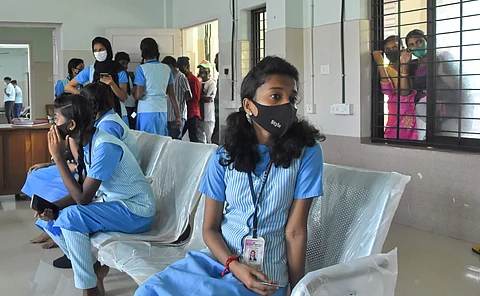

Children belonging to the most marginalised sections in India were the worst affected during the COVID-19 pandemic as it led to their increased isolation, affecting their mental health significantly, a report revealed on Tuesday, June 28. The report that was released by a non-profit, Save the Children-Bal Raksha Bharat, showed an increase in feelings of loneliness, anxiety, anger, grief and substance and sexual abuse among children, as stated in a report by the IANS.
Around 44 per cent of children reported that they could not share their sorrow/anger/stress-related feelings with anyone. Additionally, three out of four children could not share serious concerns like domestic/spousal violence with anyone. Isolation from the peer group had a major impact on the mental well-being of the children with increased cases of child labour and substance abuse being reported as they struggled with the lack of coping mechanisms to express their feelings and thoughts.
Parents also perceived that this situation was further aggravated with children being out of school and lacking learning opportunities at home (61 per cent). Most of the children (39 per cent) were worried about death, illness, separation of a loved one, or fear of disease. Feelings of loneliness (59 per cent) and being worried about death, illness, separation, or disease (83 per cent) was mostly reported in Karnataka, whereas disturbed sleep patterns were majorly reported in Delhi (51 per cent). Additionally, physical fighting was the maximum in Jharkhand (42 per cent).
A significant number of children also reported abuse, including fear of being left alone with a given person (27 per cent), sudden emotional or behavioural change (27 per cent), abandonment of previous play habits (29 per cent) and genital/anal injuries (15 per cent).
"Lockdown owing to COVID-19 not only led to reduced socialising amongst people but also increased the intensity of different emotions that parents and children feel. This brought a complex array of challenges that had mental health repercussions for children and adolescents," said Anindit Roy Chowdhury, Chief Programme Officer, Save the Children, in a statement.
For the report, 4,052 respondents (2,743 adults and 1,309 adolescents) spread across 24 districts in six states, namely Madhya Pradesh, Jharkhand, Delhi, Karnataka, Maharashtra and Assam, were surveyed between June 2020 and December 2021.
